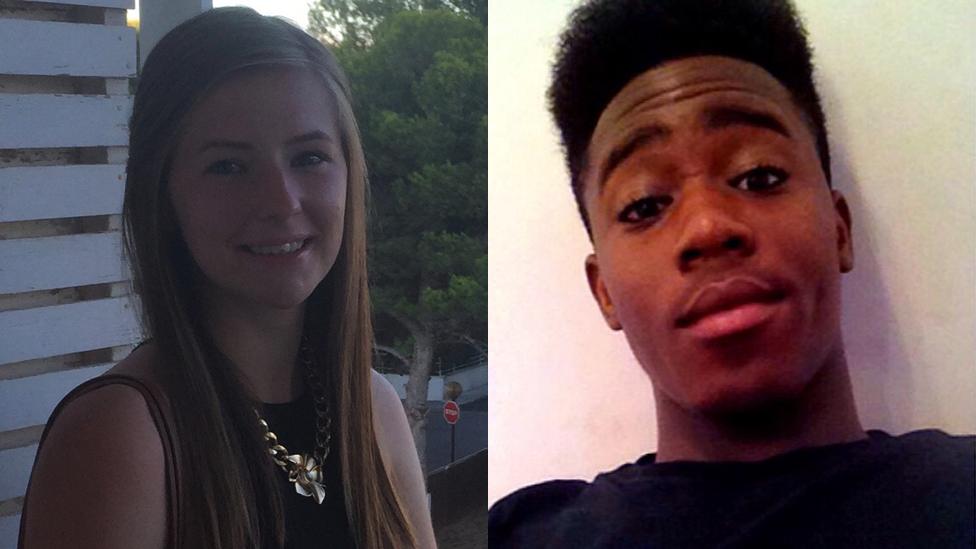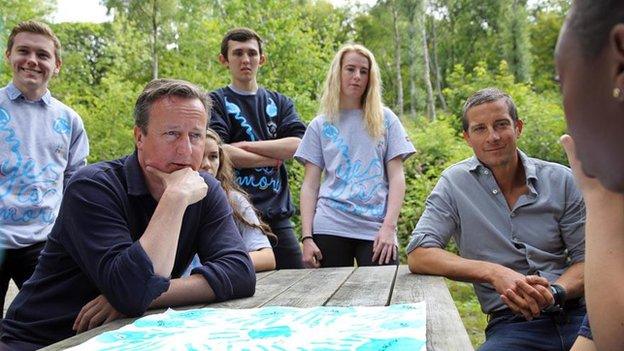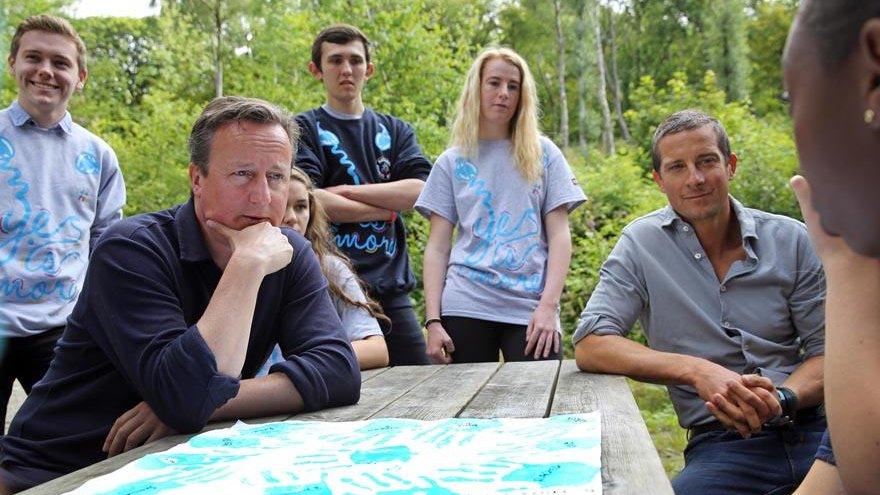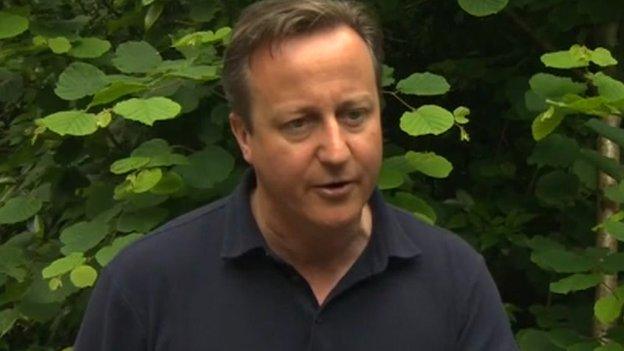National Citizen Service: Call for 'radical thinking' for voluntary scheme
- Published

A voluntary scheme for young people needs to demonstrate "radical thinking" if it is to achieve its ambitions, a committee of MPs has said.
The National Citizen Service (NCS), launched in 2011 by then-PM David Cameron, sees groups of 16 and 17-year olds carry out community projects.
But the Public Accounts Committee (PAC) says it "may no longer be justifiable" unless costs can be brought down.
A government spokeswoman said the NCS had a positive impact on young people.
More than 300,000 teenagers have taken part in the scheme, which usually takes place over four consecutive weeks and involves preparing teenagers for work through team-building activities on residential courses.
It was a key part of Mr Cameron's "Big Society" agenda, encouraging the growth of volunteering and promoting social enterprises.
He took up a post as chairman of its panel of patrons after leaving office last year.
The PAC's report, external acknowledges that evaluations by the Office for Civil Society suggest the schemes do have an impact on those taking part.
But it also says the Department for Culture, Media and Sport (DCMS), which has overall responsibility for the NCS, "lacks the data to measure long-term outcomes of the programme or understand what works".
It also says the NCS Trust and the DCMS cannot justify the "seemingly high" cost per participant.
These are expected to reach £1,863 of taxpayers' money in 2016.
The report compares this with the Scout Association, which estimates a cost of £550 to create a place in the Scouts that lasts at least four years.
The PAC also highlights that the NCS Trust paid providers about £10m in 2016 for places that were not filled.
It also expresses its "disappointment" at the Trust's "relaxed attitude about the non-recovery of these funds".
And its MPs also raise concerns about the Trust's transparency and governance, stating it is "unclear" whether the Trust "has the skills and experience necessary to oversee growth of the NCS programme".

'I absolutely loved it'

Katie Aris and Clement Owusu say the NCS gave them both confidence
Katie Aris, 20, is from Portsmouth and took part in the NCS during the summer of 2013.
She only took part because her mother signed her up for it, but it turned out to be "by far the best four weeks of my life".
"At first we did activities like rock climbing and paddle boarding, then moved on to business enterprise and money management. Finally we worked in a garden at a hospice and raised funds for it.
"I absolutely loved it. The scheme was a massive boost to my confidence. I did things I'd never have had the chance to do otherwise."
Katie now works for Pompey in the Community, a charity for Portsmouth Football Club which partners with the NCS, and says taking part in the volunteer programme "ended up giving me a career".
Clement Owusu, 18, is a sixth form student from Kensall Green, north London. He says he only joined the NCS because some of his friends were doing so - but on the first day, he was the only one to turn up.
"But because I didn't know anyone, it made me meet new people," he said.
"I came from Italy in Year Eight at school and couldn't speak English. The NCS gave me my confidence back and during the four weeks, my group nominated me to give a speech to everyone.
"At the end we raised £400 for a hospice and even after I've left, I'm still involved with the NCS's leaders programme, helping others come through the scheme.
"I realised that through passion you can achieve anything."

PAC chairwoman, Labour MP Meg Hillier, said the scheme had reached a "critical juncture".
"The government intends to push on with plans to grow participation, citing evidence that NCS has had a positive impact on young people who have taken part," she said.
"However, this does not in itself justify the level of public spending on the programme, nor demonstrate that NCS in its current form will deliver the proposed benefits to wider society."

David Cameron met young volunteers in 2015 with Bear Grylls (right)
According to Ms Hillier, 99% of the Trust's £475m income since 2014-15 has come from the public purse.
"This and future commitments are significant sums yet it is not at all clear why NCS participation costs should be so much higher than those for a voluntary sector organisation such as the Scouts," she said.
She also queried why the NCS Trust should "apparently be so reluctant" to voluntarily disclose such financial information as its directors' salaries.
"This attitude does nothing to build public confidence in an organisation that has lacked discipline in recovering overpayments of taxpayers' money, while running a programme for which there is still no clear evaluation plan," she added.
A spokeswoman for the DCMS said: "NCS has had a positive impact on the lives of over 300,000 young people to date and we want many more to benefit from it.
"Independent evaluation has demonstrated that NCS is delivering value for money and we will be looking closely at how we can better measure the impact it has in the long term.
"The NCS Bill, in its final stages in the House of Commons, will also ensure that the NCS Trust is directly accountable to Parliament for its use of public money."
- Published7 August 2015

- Published7 August 2015
